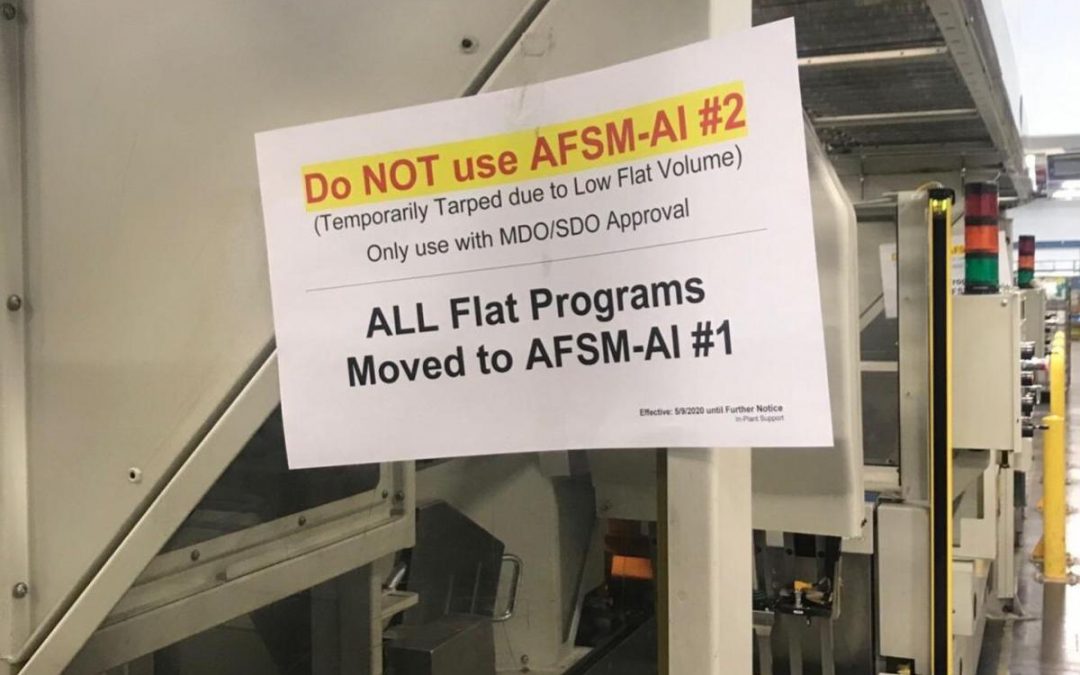WASHINGTON — Thousands of Wisconsinites, including postal workers, have raised concerns with U.S. Sen. Tammy Baldwin about recent changes to the mail system, including that the U.S. Postal Service isn’t ready to handle the high number of absentee ballots come Election Day.
John Kieca, a repairman at the USPS Madison office and one of the postal workers who contacted Baldwin’s office, said in an interview that only one of two automated flat mail sorting machines, which handles larger mail such as absentee ballots, is operating for the Madison Post Office.
“If something goes wrong, the sorting machine could be down for 12 hours,” Kieca said. “Right now, we are doing OK, but I’m not sure what will happen when we get to Election Day.”
Baldwin, D-Madison, sent a letter this week to Postmaster General Louis DeJoy asserting that his proposed operational changes — such as the removal and disconnection of mail sorting machines, denials of overtime and bans on late or extra trips to deliver mail — are still being implemented in Wisconsin’s post offices even though they were blocked by a federal judge in July.
Baldwin’s letter included pictures of signs on a connected sorting machine in the Madison Post Office directing that it should not be run or operated. Kieca said the signs were posted to ensure that the machine shows up as connected in USPS data, but is not actually used.
U.S. Sen. Tammy Baldwin received photos showing sorting machines that are not being used at the Madison Post Office. John Kieca, a U.S. Postal Service repairman, said the signs were posted to ensure the machines that show up as connected in USPS data are not actually used.
Baldwin wrote in the letter that the policies are especially concerning considering the already high number of citizens using mail-in ballots to vote in the Nov. 3 election.
According to a representative from Baldwin’s office, around 15,000 constituents have contacted Baldwin with concerns about the Postal Service since DeJoy attempted to institute the operational changes in mid-July.
Sorting machines are essential to a post office’s operations because they determine how and where to route mail for delivery. While many sorting machines were reconnected in Wisconsin after the federal judge’s ruling, some are still not being used to process mail, Baldwin’s letter said.
Kieca said there were 13 digital bar code sorting machines and two automated flat mail sorting machines running before DeJoy’s changes in Madison, and now there are 10 digital bar code sorting machines and one automated flat mail sorting machine running.
DeJoy has not publicly responded to Baldwin’s letter. Representatives from the federal and Wisconsin USPS did not respond when asked for comment on Baldwin’s letter.
Reid Magney, public information officer for the Wisconsin Elections Commission, said that voters need to give enough time for the Postal Service to deliver ballots.
“Our message to the public has been consistent: Voters need to plan for seven days of postal transit time both ways if they are planning to vote absentee by mail. USPS has assured us that seven days is enough time to guarantee delivery,” Magney wrote in an email.
The commission reports that about 1.5 million voters have applied for and been sent mail-in ballots since Oct. 19 compared with only about 270,000 voters at the same time in 2016. Of those, more than 1 million have been returned. Another 79,774 people have voted early in-person, which voters can do through Nov. 1.
The deadline to request an absentee ballot is Oct. 29 at 5 p.m. for regular and overseas voters and by Oct. 30 at 5 p.m. for indefinitely confined voters and military voters who are not on active duty. Under current state law they must be returned to the local clerk or polling place by 8 p.m. on Election Day, but that law is being challenged before the U.S. Supreme Court.

